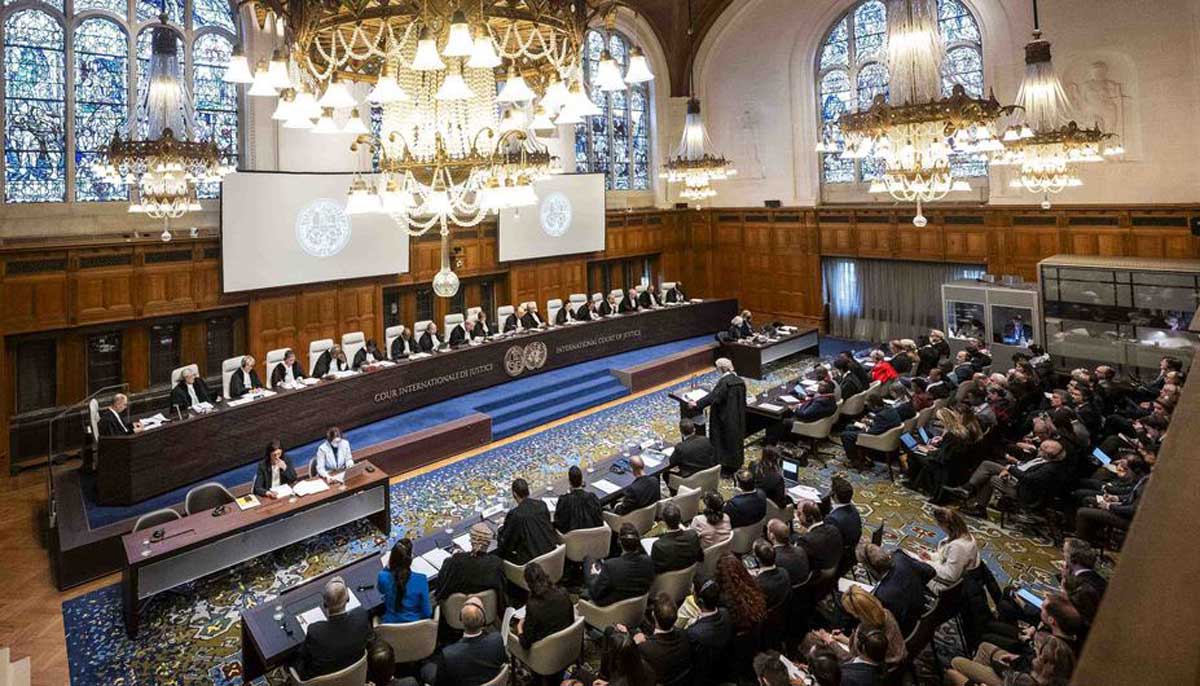“Israel is in a war of defence against Hamas, not against the Palestinian people” in the aftermath of Hamas-led terror attacks on 7 October, Israel coagent Tal Becker told judges in The Hague.
There had been “tragic” and “heartbreaking” civilian suffering “in this war, like in all wars”, Mr. Becker said, as he read out the last anguished text messages sent by the father of one Israeli farming family, burned to death in their home by presumed Hamas fighters who “tortured children in front of parents and parents in front of children”.
Defence ‘obligations’
Mr. Becker also rejected South Africa’s petition to the court under the provisions of the Genocide Convention to issue “provisional measures” to order Israel to immediately suspend its military campaign in Gaza.
This amounted “to an attempt to deny Israel its ability to meet its obligations to the defence of its citizens, to the hostages and to over 110,000 displaced Israelis unable to safely return to their homes,” he said.
The issue of justified self-defence featured prominently in Israel’s presentation.
When a State is attacked, it has the right to defend itself and its citizens, Israel’s legal team insisted, before underscoring the deep trauma resulting from the 7 October terror attacks by Hamas and other Palestinian militants who rampaged across southern Israel, slaughtering some 1,200 people and taking around 250 captive.
“There is no genocidal intent here, this is no genocide,” said Israel counsel Malcolm Shaw. Hamas atrocities “do not justify violations of the law in reply – still less genocide – but they do justify…the exercise of the legitimate and inherent right of a State to defend itself as enshrined in the UN Charter“.
New UN ceasefire call
In a related development on Friday, the UN human rights office OHCHR reiterated its call on Friday for an immediate end to the violence in Gaza.
“There must be a ceasefire to end the appalling suffering and loss of life, and to allow the prompt and effective delivery of humanitarian aid to a population facing shocking levels of hunger and disease,” OHCHR said in a statement.
In the past 14 weeks of conflict in Gaza, Israel’s “massive and destructive military response” had left more than 23,000 Palestinians dead, some two-thirds of them women and children, the UN rights office said.
It also noted that Palestinian armed groups had continued to launch “indiscriminate rockets towards Israel”.
Civilian infrastructure in Gaza, including homes, hospitals, schools, bakeries, places of worship, water systems, as well as the UN’s own facilities, have also been widely damaged or destroyed, OHCHR continued, before describing the situation in southern Gaza as “untenable”, with over 1.3 million internally displaced people crammed into the southern city of Rafah close to the Egyptian border.
‘Weaponizing genocide’
Rejecting South Africa’s “profoundly distorted” description of the war in Gaza, Israel’s legal team accused that country’s legal team of attempting to “weaponize” the term genocide, which it insisted was a better description of Hamas’s “annihilationist language” about “cleansing” Palestine of Jews.
The armed group which controls Gaza had diverted billions of dollars of aid and turned the Strip into “perhaps the most sophisticated terrorist stronghold in the history of urban warfare” embedded in communities, the court heard.
“Urban warfare will always result in tragic deaths, harm and damage, but in Gaza these undesired outcomes are exacerbated because they are the desired outcomes of Hamas,” said Galit Raguan, for Israel.
Asserting that “every single hospital” searched by Israeli Defense Forces had found evidence of military use by Hamas, the Israel legal counsel also alleged that weapons had been found hidden inside a hospital incubator.
The world court also heard how the Israeli military had demonstrated “the precise opposite” of any possible genocidal intent by restricting its targeting to military personnel or objectives “in accordance with international humanitarian law in a proportionate manner in each case”.
Israel’s efforts “to mitigate harm” during military operations and to alleviate suffering through humanitarian activities had gone “relatively unnoticed”, amid the “unprecedented and extensive” use of telephone calls and leafletting to warn populations of impending conflict, the Israel legal team noted.
